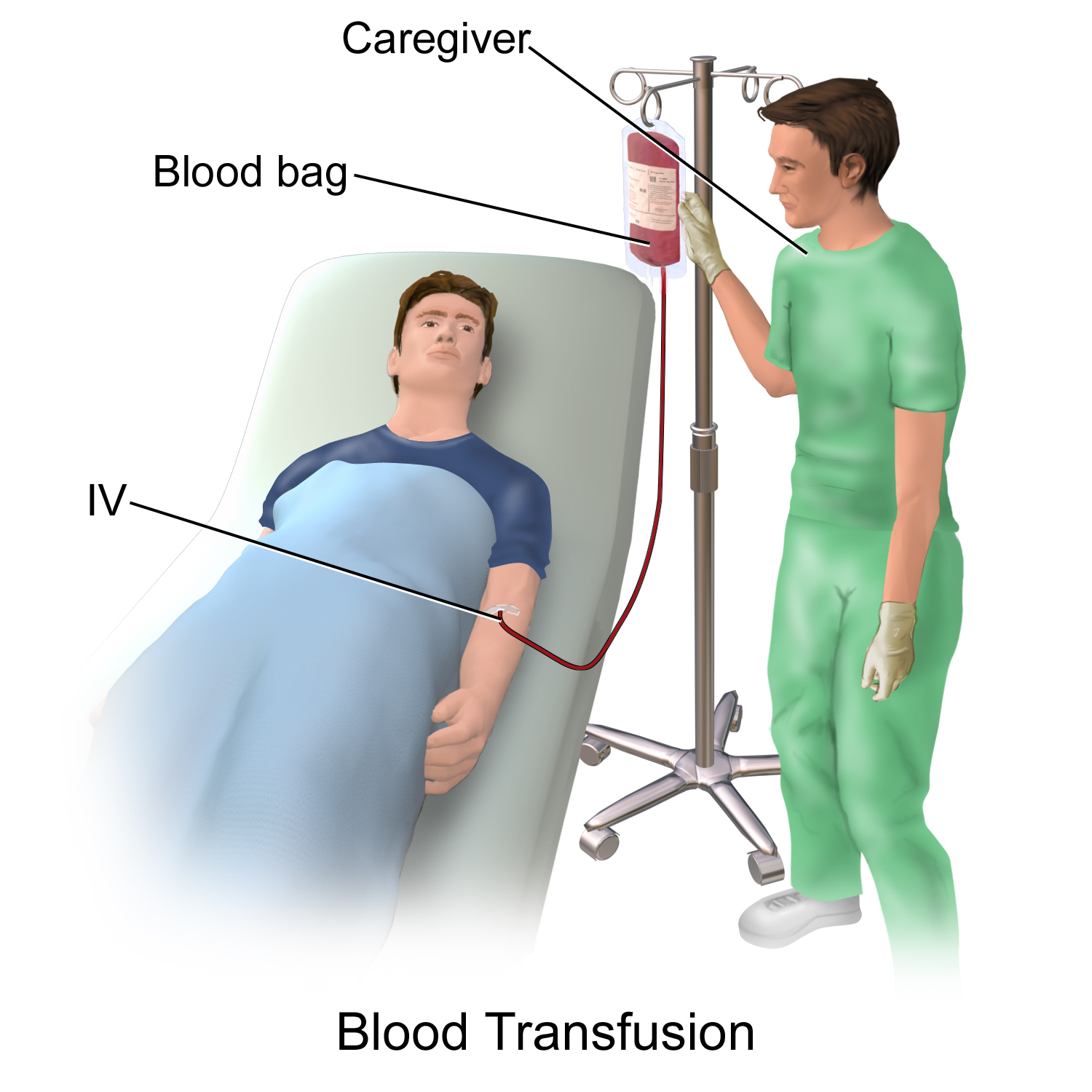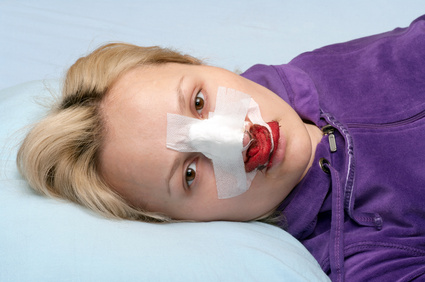1. A loss of 15% blood volume. No change in vital signs.
2. A loss of 15-30% blood volume. Blood transfusion isn’t usually necessary, but may need Saline solution (salt water). Rapid heart beat.
3. A loss of 30-40% blood volume. Blood transfusions are necessary. Drop in blood pressure with rapid heart beat.
4. A loss of 40% blood volume. Resuscitation is necessary for death prevention.
Treatment: check for universal precautions. Perform CPR, if necessary. Wrap hemorrhage, if possible. Call 911 or bring the patient to the nearest hospital.
Nosebleeds are very common. Whether it’s a hot day or a minor fall nosebleeds are not a serious medical problem.
Treatment: If the nosebleed results from a more serious injury such as: a broken nose or a head injury, make sure to call 911. If the patient falls unconscious or is non-responsive without a pulse, perform CPR. If the nosebleed occurs to be a serious injury make sure to apply pressure to the nose for roughly ten minutes—make sure to have the patient breathe through his/her mouth. After applying pressure, make sure to clear the patient's nose cavity. If the patient is congested, thoroughly wash the cavity or use a decongestant after the patient has tried blowing his/her nose.
If the patient undergoes many nosebleeds it can be a more serious injury than it appears so have the patient call his/her doctor to set-up and appointment.
Hypoglycemia is a syndrome which results from low blood sugar.
Symptoms: (may vary from person-to-person) anxiety, fatigue, heart palpitations, hunger, irritability, pale skin, shakiness, sweating, and tingling sensation around the mouth.
As it worsens - symptoms worsen: abnormal behavior, blurred vision, confusion state of mind, seizures, unable to perform routine tasks and unconsciousness.
Treatment: for symptomatic hypoglycemia provide a rapid clinical relief with oral glucose tablets. If glucose tablets aren't available provide other foods and liquids containing sugars such as: fructose, sucrose, and oligonucleotides. Such foods can effectively reverse mild symptomatic hypoglycemia.





